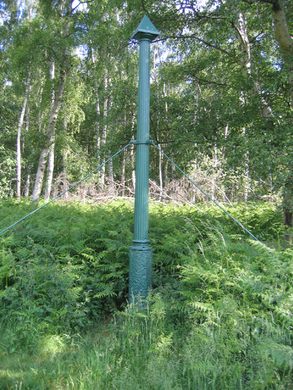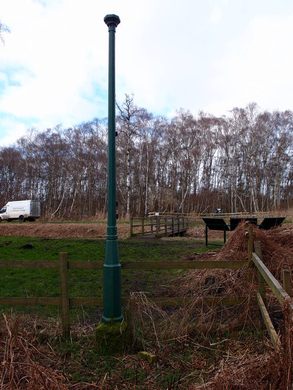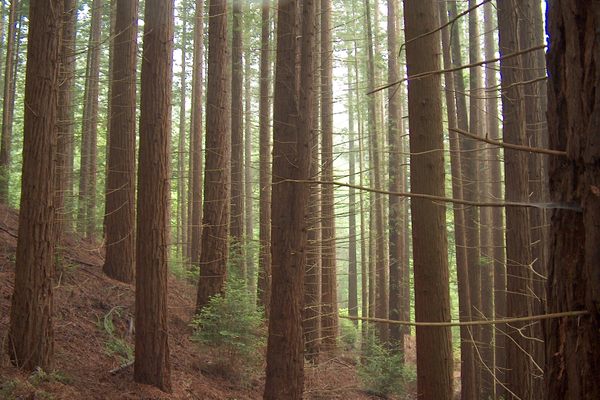AO Edited
Holme Fen Posts
Once-buried markers show England’s lowest land point keeps getting lower.
Two monolithic cast iron posts anomalously lurk in a birch forest. At nine feet below sea level, they mark the lowest land point in England. Once completely buried, these improvised geographical tools became gradually exposed as the peaty earth around them sank 13 feet.
The first Holme Fen Posts were commissioned by a landowner William Wells, who was concerned about the effects of his scheme to drain a local wetland, Whittlesey Mere, on the already uniform, low-lying landscape of the East of England. Similar projects elsewhere had resulted in sunken land and the need for costly water management solutions like the Denver Sluice.
The posts were purposely driven through the soft, waterlogged peat into an underlying layer of clay to measure the rate the peat contracted due to marsh drainage. The idea was that as the peat sank, the posts, firmly rooted in the solid clay below, would gradually become exposed, revealing how rapidly the otherwise homogenous landscape was falling below the level of the all-too-close North Sea. Thirty years after the first post was sunk, the land had already dropped eight feet.
The older of the two posts dates to 1851 and replaced an earlier wooden post. Its ornate nature suggests it may have been sourced from ill-fated Crystal Palace in London. The later post dates to 1957 and like its older sibling was originally totally buried up to its top as a simple but effective way of measuring how the drying out of the land affects its height.
Know Before You Go
The posts are located in the Holme Fen National Nature Reserve. After passing through Holme, follow the signpost onto Holme Lane and through a level crossing. The posts are clearly visible on the right-hand side across a small bridge.
Parking is available opposite the posts or along the lane.






















Follow us on Twitter to get the latest on the world's hidden wonders.
Like us on Facebook to get the latest on the world's hidden wonders.
Follow us on Twitter Like us on Facebook